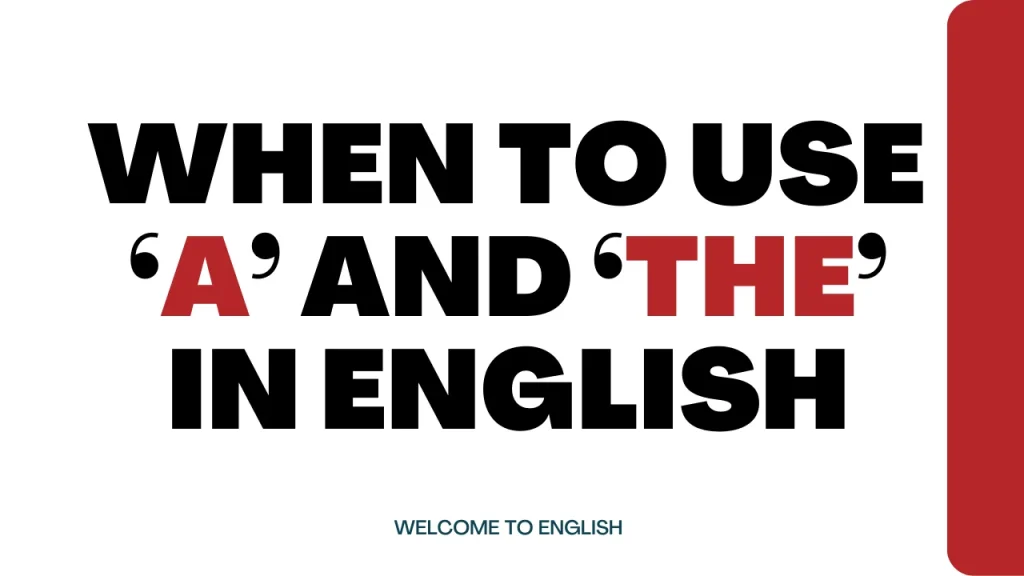
Articles are words that modify nouns. In English, there are two types of articles: definite and indefinite. The definite article is ‘the’, and the indefinite articles are ‘a’ and ‘an’. Knowing when to use them can be tricky, but here are some general rules to help you.
Definite article: ‘the’
We use ‘the’ when we want to refer to something specific or unique. For example:
- The sun is shining. (There is only one sun in our solar system.)
- I saw the movie you recommended. (We know which movie we are talking about.)
- She is the best singer in the world. (There is only one person who has this title.)
We also use ‘the’ when we have already mentioned the noun before, or when the listener or reader knows what we are talking about. For example:
- I bought a book and a pen. The book was cheap, but the pen was expensive. (We use ‘the’ because we have already introduced the book and the pen.)
- Can you close the door, please? (We use ‘the’ because we assume there is only one door in the room, or we know which door we mean.)
Indefinite articles: ‘a’ and ‘an’
We use ‘a’ or ‘an’ when we want to refer to something in general, or something that is not specific or unique. For example:
- I need a car. (It doesn’t matter which car, any car will do.)
- She is an engineer. (She is one of many engineers in the world.)
- He has a dog and a cat. (They are not specific animals, just common pets.)
We also use ‘a’ or ‘an’ when we mention something for the first time, or when we describe someone’s profession, nationality, or religion. For example:
- I met a nice girl at the party. (This is the first time we talk about her.)
- He is a Muslim. (This is his religion.)
- She is an American. (This is her nationality.)
The difference between ‘a’ and ‘an’ depends on the sound of the word that follows them. We use ‘a’ before a word that starts with a consonant sound, and ‘an’ before a word that starts with a vowel sound. For example:
- a book, a house, a university, a one-dollar bill
- an apple, an hour, an elephant, an MP3 player
Note that the sound is more important than the spelling. Some words that start with a vowel letter may have a consonant sound, and vice versa. For example:
- a unit, a European, a one-way ticket
- an honest man, an X-ray, an hourglass
No article
Sometimes we don’t use any article at all. This is usually the case with uncountable nouns (such as water, music, love) and plural countable nouns (such as cars, children, people) when we talk about them in general. For example:
- Water is essential for life. (We are not talking about a specific amount of water, but water in general.)
- I like music. (We are not talking about a specific type of music, but music in general.)
- Cars are expensive. (We are not talking about specific cars, but cars in general.)
However, we can use ‘the’ with uncountable nouns and plural countable nouns when we want to make them specific. For example:
- The water in the bottle is cold. (We are not talking about water in general, but the water in a specific bottle.)
- I like the music you play. (We are not talking about music in general, but the music you play.)
- The cars in the parking lot are new. (We are not talking about cars in general, but the cars in a specific parking lot.)
To summarize, we use articles to show whether we are talking about something specific or something general. We use ‘the’ for specific nouns, and ‘a’ or ‘an’ for general nouns. We don’t use any article for general uncountable nouns and general plural countable nouns.